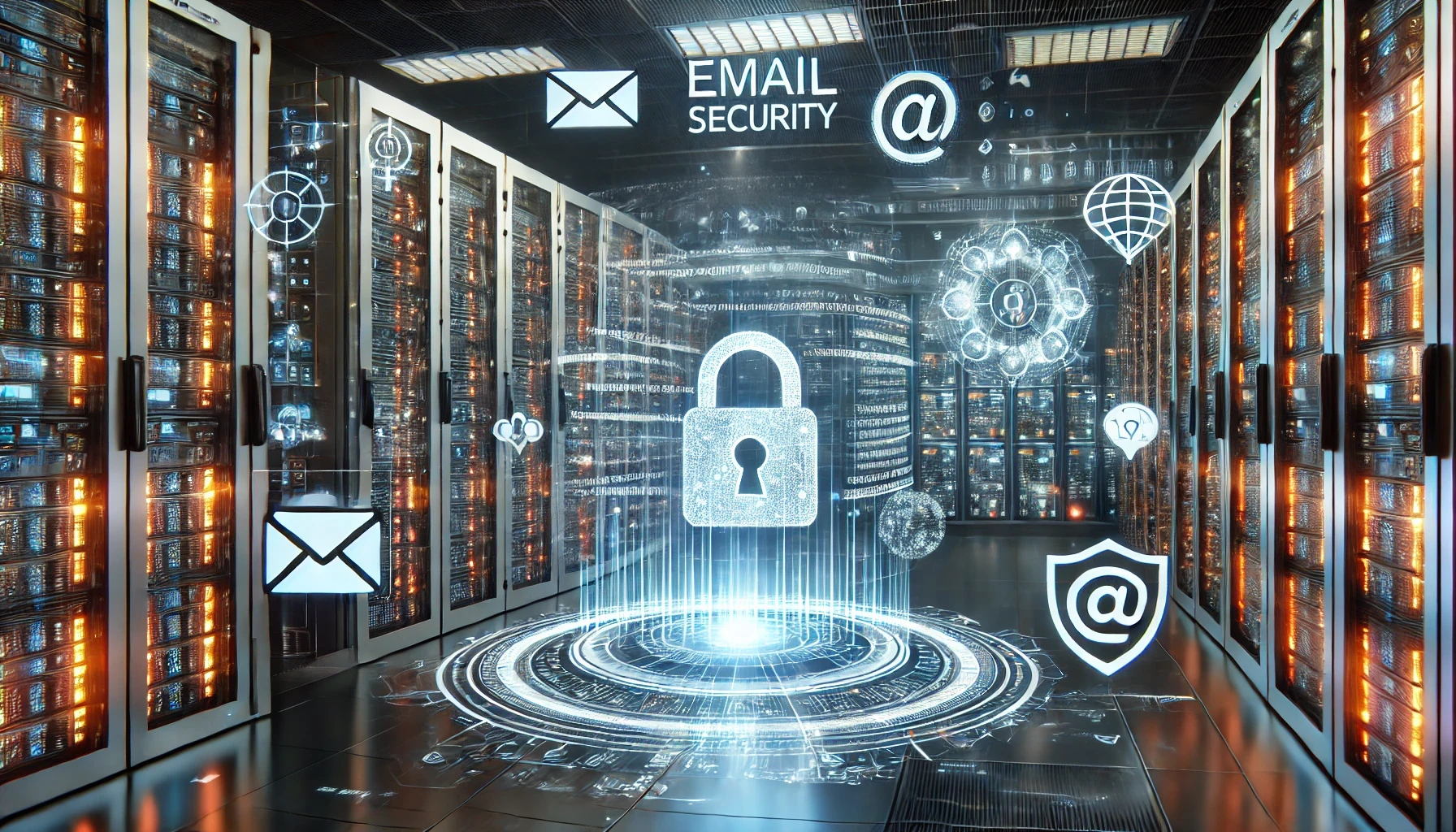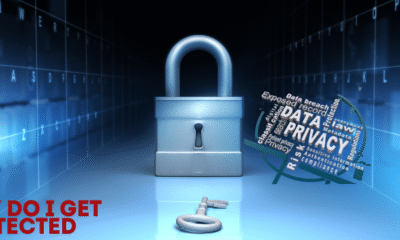Technology
How Businesses Are Securing Email Communications in the Age of Cyber Threats

Email remains a cornerstone of professional communication, but its role as a critical tool also makes it a primary target for cybercriminals. From phishing campaigns and ransomware attacks to sophisticated Business Email Compromise (BEC) schemes, email security is a pressing concern for businesses. As attacks grow in scale and sophistication, organizations are stepping up with advanced tools, comprehensive training, and strategic partnerships to keep sensitive information secure. Here’s how businesses are tackling email security threats while ensuring compliance and maintaining trust.
The Role of Advanced Tools in Email Security
Technology is often the first line of defense against email threats. Businesses are increasingly relying on advanced security tools that use artificial intelligence (AI) and machine learning to detect and counter malicious activity. These systems analyze patterns in email behavior, sender metadata, and content to flag potentially harmful messages before they reach their targets.
AI-driven solutions excel at identifying phishing attacks, even those crafted with highly convincing social engineering techniques. These tools significantly reduce the likelihood of successful attacks by comparing incoming emails against databases of known threats and analyzing anomalies
Encryption also plays a pivotal role in securing email communication. It ensures that messages and attachments are inaccessible to unauthorized users, even if intercepted. End-to-end encryption (E2EE), for instance, protects email content from the moment it’s sent until the recipient decrypts it, ensuring robust security for sensitive exchanges.
Building Awareness Through Employee Training
While technology can thwart many threats, human error remains a major vulnerability. Employees unknowingly clicking on malicious links or sharing sensitive information are often the entry points for cyberattacks. In response, businesses are ramping up their training programs to educate employees on recognizing and avoiding email-based threats.
Training initiatives typically include identifying phishing attempts, understanding suspicious sender behavior, and practicing strong password management. Simulated phishing exercises are also becoming common, allowing organizations to test their workforce’s vigilance and tailor future training to address gaps.
This emphasis on employee awareness is vital, as well-trained staff act as a crucial barrier against breaches, complementing technical defenses.
Zero Trust: A Strategic Shift in Security
Many businesses are adopting zero-trust models to bolster their email security strategies. This approach operates under the principle that no email communication should be trusted by default, whether internal or external. Strict authentication and verification measures are applied to every interaction.
Multi-factor authentication (MFA) is a key component of this model. MFA adds a significant layer of security against account takeovers because it requires multiple verification steps—such as a password and a unique code sent to a secondary device.
Organizations are also integrating their email systems with Security Information and Event Management (SIEM) platforms. These systems enable real-time monitoring of email activity and provide immediate alerts for unusual behavior, allowing security teams to act quickly and decisively.
Staying Ahead with Threat Intelligence
Anticipating threats is as critical as responding to them. Businesses are turning to threat intelligence platforms to gain insights into the tactics used by cybercriminals. These platforms collect and analyze data from past incidents to identify emerging patterns, helping organizations prepare for potential attacks.
Threat intelligence is often paired with automated incident response systems. These systems can swiftly quarantine malicious emails and notify affected users, minimizing damage and reducing the burden on IT teams. For example, if a phishing email slips through initial defenses, the system can isolate it before it’s opened, ensuring minimal exposure.
The Importance of Regulatory Compliance
Regulations like the General Data Protection Regulation (GDPR) and the California Consumer Privacy Act (CCPA) have heightened the need for secure email practices. These laws mandate the protection of personal and sensitive data, with severe penalties for non-compliance.
To meet these regulatory standards, businesses are implementing measures such as secure email gateways, encryption, and email archiving solutions. These tools help ensure that sensitive information remains protected throughout its lifecycle. Regular audits and compliance checks further reinforce adherence to legal requirements.
Expert Support for Email Security
Given the challenges of managing email security in-house, many businesses are turning to third-party expert providers for specialized assistance. SaaS providers bring expertise and resources that can be difficult for organizations to develop internally, especially for small to mid-sized enterprises.
Echoworx, a notable name in this space, has a comprehensive suite of email security solutions tailored to the needs of businesses. The company’s encryption platform is particularly valuable, providing secure email communication with a focus on ease of use. Echoworx’s tools encrypt emails both during transit and at rest, safeguarding them from interception or unauthorized access. This feature is especially crucial for industries like healthcare and finance, where compliance with regulations such as HIPAA and GDPR is a critical requirement.
In addition to encryption, Echoworx provides services like secure email gateways and email authentication protocols. The company helps businesses maintain the confidentiality and integrity of their communications addressing threats at multiple levels as it addresses threats at multiple levels. Partnering with SaaS like Echoworx enables organizations to focus on their core operations while ensuring their email systems are robustly protected.
Strengthening Trust Through Secure Communication
Secure email practices do more than protect businesses from financial and reputational damage—they also build trust with customers, partners, and stakeholders. Clients expect their information to be handled responsibly, and breaches can quickly erode confidence.
Encryption and other advanced email security measures reassure customers that their data is safe, fostering stronger relationships. This trust is especially valuable in sectors where confidentiality is a top concern, such as legal services and government communications.
Looking Ahead
As cyber threats continue to challenge organizations, the need for resilient email security strategies has never been greater. Businesses are responding with a combination of cutting-edge technology, employee education, and strategic partnerships. Thanks to measures such as embracing encryption, adopting Zero Trust principles, and leveraging the expertise of SaaS providers like Echoworx, organizations are well-positioned to protect their communications against even the most determined adversaries.
With these strategies in place, businesses can ensure that email remains a secure and reliable tool, enabling them to communicate effectively without compromising safety. As cyber threats continue to change and become complex, staying proactive and adaptable will be the key to long-term success in email security.
-

 Press Release4 days ago
Press Release4 days agoClinical Trials Market Set for Robust Growth, Driven by Drug Development Surge and Digital Innovation
-

 Press Release5 days ago
Press Release5 days agoFill-Finish Pharmaceutical Contract Manufacturing Market Expected to Flourish Amid Biopharmaceutical Boom and Global Outsourcing Trend by 2035
-

 Press Release7 days ago
Press Release7 days agoBellarium ($BEL) Price Prediction: Could It Hit $5 by 2026?
-

 Business6 days ago
Business6 days agoHow Managed IT Solutions Help Small Teams Compete at Enterprise Scale
-

 Press Release5 days ago
Press Release5 days agoGreen Bio Chemicals Market Poised for Sustainable Growth amidst Global Shift to Eco-Friendly Alternatives by 2035
-

 Press Release5 days ago
Press Release5 days agoIndustrial Boiler Market Expected to Surpass USD 24.4 Billion by 2035 Amid Growing Demand for Energy Efficiency and Industrialization
-

 Press Release5 days ago
Press Release5 days agoPreventive Vaccines Market to Witness Strong Growth by 2035
-

 Press Release5 days ago
Press Release5 days agoPet Food Nutraceutical Market Set for Robust Expansion Amid Rising Demand for Pet Wellness by 2035












